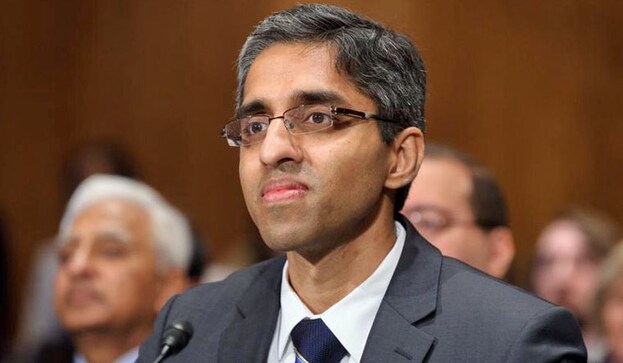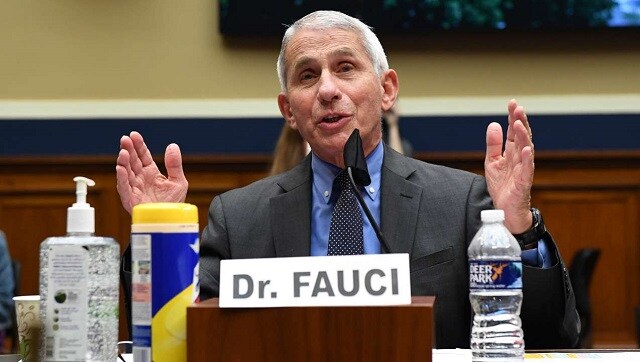Why speeding up vaccination is key to arresting rise of severe cases from Delta-plus variant
Delta plus variant: Incased transmissibility, which means that it can spread faster, makes it even more dangerous for a populated country like India

Representational image. AP
It has already been designated as a 'variant of concern' in India and cases linked to the novel coronavirus ' Delta-plus avatar has now been reported in at least four states. Internationally, it has been identified in more than 10 countries. Clearly, health authorities are worried about Delta's newest manifestation and what it means for the pandemic fight. But at a time when vaccination campaigns are continuing apace and new therapies have hit the market, how is the risk from this variant being evaluated and what are the strategies that can work to blunt it.
' Delta-plus avatar has now been reported in at least four states. Internationally, it has been identified in more than 10 countries. Clearly, health authorities are worried about Delta's newest manifestation and what it means for the pandemic fight. But at a time when vaccination campaigns are continuing apace and new therapies have hit the market, how is the risk from this variant being evaluated and what are the strategies that can work to blunt it.
What is the Delta-plus variant?
So, to begin at the beginning, the World Health Organisation (WHO) has designated the Delta-plus's parent strain, the original Delta, or B.1.617.2, as a variant of concern globally. The first genetic signatures of the Delta-plus variant, also called AY.1, were identified in Europe in March and, then, in April, the UK said that the first five cases sequenced in the country "were contacts of individuals who had travelled from, or transited through, Nepal and Turkey".
The original Delta was designated as a separate strain of the novel coronavirus as it showed some specific mutations that made the virus behave differently from other variants. The Delta-plus variant has taken on other mutations and is seen as being substantially different from the parent lineage. The key mutation is called K417N and involves the spike proteins on the virus's surface that it uses to invade human cells. Experts say that the K417N allows the virus to latch on more tightly to human cells.
as it showed some specific mutations that made the virus behave differently from other variants. The Delta-plus variant has taken on other mutations and is seen as being substantially different from the parent lineage. The key mutation is called K417N and involves the spike proteins on the virus's surface that it uses to invade human cells. Experts say that the K417N allows the virus to latch on more tightly to human cells.
Indian health authorities who advised that Delta-plus should be termed a "variant of concern" said it had two other worrying characteristics: incased transmissibility, which means that it can spread faster, and, a likely ability to resist monoclonal antibody treatment. Monoclonal antibody therapies are a new line of treatment okayed in India for use in mild to moderate cases of COVID-19 in high-risk patients.
in high-risk patients.
Do vaccines work against Delta-plus variant?
That is the key question that scientists and health experts are looking to satisfactorily answer. The emergence of any new significant variant is almost always accompanied by questions regarding the effectiveness of vaccines against it. That is because if a vaccine was developed against earlier strains of the novel coronavirus that were predominant at the time, it is suspected that it won't be equally effective against a newer variant. But experts say there is no blanket or default rule operating here.
that were predominant at the time, it is suspected that it won't be equally effective against a newer variant. But experts say there is no blanket or default rule operating here.
The Union health ministry has said that Covishield and Covaxin — the two frontline vaccines being used in India — are both effective against the Delta-plus variant although further details are awaited.
Experts quoted by a BBC report said that the Delta-plus variant may be better at spreading among the population and could also display the ability to affect people with weak immune systems or those who have "incomplete vaccine immunity".
The Indian Council of Medical Research (ICMR) and the National Institute of Virology (NIV) have said they will study the Delta-plus variant in terms of how effective vaccines are against it.
“As per earlier data concerning Delta variant, neutralisation was happening with the existing vaccines in India. Though neutralisation has dropped, it’s enough to protect against the Delta variant. Delta-plus should also behave (in a similar manner). We are working in this direction. We have isolated this variant and we are going to conduct a study soon," an NIV scientist said.
What strategy are experts recommending?
According to a Reuters report, the WHO has noted the higher risk of transmission with Delta-plus but is yet to issue any advisory regarding this variant. "WHO is tracking this variant as part of the Delta variant, as we are doing for other Variants of Concern with additional mutations," the UN agency told Reuters.
"For the moment, this variant does not seem to be common, currently accounting for only a small fraction of the Delta sequences. Delta and other circulating Variants of Concern remain a higher public health risk as they have demonstrated increases in transmission," it added.
However, the Union health ministry has already said that areas where this variant is found "may need to enhance their public health response by focusing on surveillance, enhanced testing, quick contact-tracing and priority vaccination". Speeding up the rate of vaccinations was the strategy countries like the UK adopted when confronted by the Delta variant as experts believe that vaccinated people show milder symptoms even if they are infected.
But on the whole, experts say that the same precautions that were necessary from the earliest days of the COVID-19 pandemic remain crucial in the face of the Delta-plus variant. Hence, masking, hand-washing and distancing should be constantly practised at the individual level while health authorities need to ensure proper testing, contact tracing and genomic surveillance to quickly
pandemic remain crucial in the face of the Delta-plus variant. Hence, masking, hand-washing and distancing should be constantly practised at the individual level while health authorities need to ensure proper testing, contact tracing and genomic surveillance to quickly
identify the emergence of new variants before they spread significantly through the population in any area.
also read

Delta variant of COVID-19 significantly 'more transmissible and dangerous', says Dr Vivek Murthy
America's Surgeon General Dr Vivek Murthy said that he is worried about those people who have not been vaccinated against the virus so far

Delhi govt preparing on war footing to combat third COVID-19 wave, says Arvind Kejriwal
Twenty-two new PSA oxygen plants will be operational at nine Delhi hospitals from Saturday to strengthen our preparations to fight Covid, the Delhi chief minister said

Delta variant, first found in India, 'greatest threat' to US' COVID-19 efforts, says Dr Anthony Fauci
The transmissibility of Delta variant is unquestionably greater than the wild type SARS-CoV2 as well as the Alpha variant, the US CDC chief added